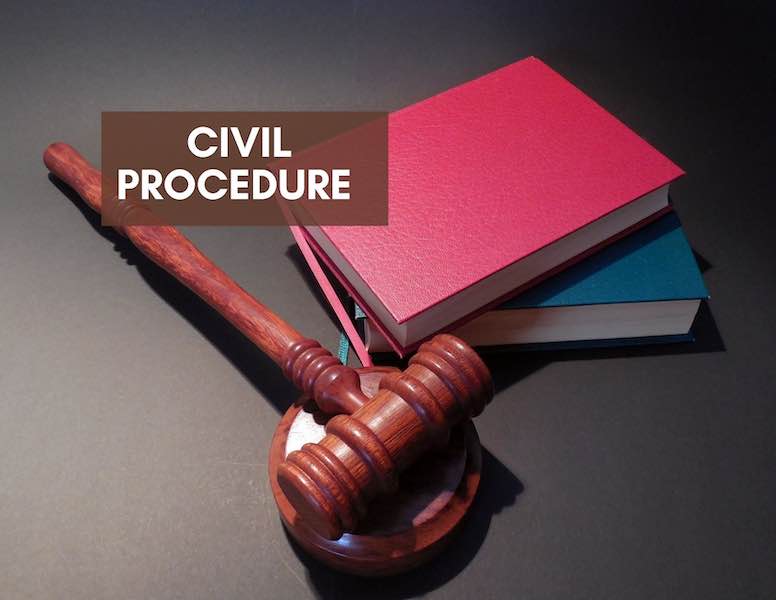THE FEDERAL COURT DECISION OF SUMBANGAN ANEKA DEVELOPMENT SDN BHD V KNK DEVELOPMENT SDN BHD & ORS
by Sean Tan Yang Wei and Chloe Ho Jie An ~ 2 August 2021
The recent Federal Court judgement of Sumbangan Aneka Development Sdn Bhd v KNK Development Sdn Bhd & Ors (Civil Appeal No.02(f)-64-08-2019 (Q)) provided clarification over two issues regarding civil procedure which were addressed in 2 leave questions, namely:
1. Where a plaintiff’s pleaded case is based on a breach of contract, is the plaintiff barred from seeking a declaration that the contract has been terminated?
2. Where there is an error in a document central to the case, is a separate legal suit required to rectify the error or can the court correct the error during the course of the trial?
The Federal Court allowed Sumbangan Aneka’s appeal and answered both leave questions in the negative.
The Facts of the Case
The case is centered around a development agreement dispute between the landowner, Sumbangan Aneka Sdn Bhd (“Sumbangan Aneka”) and a developer, KNK Development Sdn Bhd (“KNK”). Both parties entered into a development agreement on 18.10.2012. Two years later, a supplemental agreement was signed on 24.09.2014.
Near the agreed completion date for construction, KNK requested for an extension of time for completion twice. Both requests were refused by Sumbangan Aneka. Subsequently, Sumbangan Aneka terminated the development agreement and filed a suit in the High Court for a declaration that the development agreement had expired on 22.08.2016 and for other reliefs arising from KNK’s breach of the development agreement.
KNK counterclaimed for wrongful termination of the developmental agreement and for monetary losses. Critically, KNK contended that Clause 1.1 of the development agreement expressly provided that the right to extend the time for completion was vested with the developer alone based on the wording of Clause 1.1 which states:
“1.1. In the event that the Developer fails to complete the landowner’s entitlements on or before 20 August 2016 (unless time extended by the Developer), the Landowner shall: …” (emphasis added)
The High Court held that Sumbangan Aneka had the right to terminate the agreement and concluded that the word “Developer” contained in Clause 1.1 was a typographical error as it would not make any “commercial or common sense” if the right to terminate the agreement was vested with KNK. Such an outcome would leave it open to the developers to extend the completion date indefinitely. The High Court also found that the development agreement was validly terminated vide the notice of intention to re-enter. Accordingly, Sumbangan Aneka’s claim was allowed and KNK’s counterclaim was dismissed with costs.
However, the Court of Appeal disagreed and overturned the decision of the High Court. Critically, the Court of Appeal found that:
a. The High Court should not have granted a declaratory order as Sumbangan Aneka’s claim is based on a substantive right under the Contracts Act 1950.
b. Further, the High Court should not have held that the word “Developer” in Clause 1.1 was a typographical error which could be amended orally by looking at the documents or the conduct of the parties. Instead, the contract, if it did contain a typographical error, ought to have been rectified first through separate proceedings.
Dissatisfied with the decision, Sumbangan Aneka appealed to the Federal Court.
The Federal Court’s Decision:
Declaratory orders may be validly granted where the claim is based on a breach of contract.
For context, a declaratory order is a court order which declares the rights of the parties. Section 41 of the Specific Relief Act 1950 and Order 15, Rule 14 of the Rules of Court 2012 provides that the court may make a declaratory order irrespective of whether the application had a cause of action or not.
On this issue, the Federal Court endorsed a number of Court of Appeal decisions including Tirasetia Sdn Bhd v Yayasan Selangor & Anor [2012] 1 LNS 1019 and Paramaha Enterprise Sdn Bhd & Ors v The Government of the State of Sabah [2015] 2 CLJ 268 in which declaratory orders were granted by the Court of Appeal for claims based on a breach of contract. More importantly, the Federal Court reaffirmed the position in Pengarah Tanah dan Galian, Wilayah Persekutuan v Sri Lempah Enterprise Sdn Bhd [1997] 1 MLJ 135 which held that the existence of a statutory remedy is no bar for a declaratory order being granted by the court. Following this general principle, the Federal Court decided that granting a declaratory order in favour of Sumbangan Aneka was not prohibited.
Secondly, the Federal Court disagreed with the Court of Appeal’s decision and interpretation of Section 41 of the Specific Reliefs Act 1950 and clarified that Section 41 would only prevent a court from granting a declaratory order where the plaintiff omits to seek further relief. Hence, in this case, Sumbangan Aneka was entitled to declaratory reliefs, having sought for further relief for breach of contract.
A mistake in an agreement need not be rectified through a separate legal suit.
In considering this issue, the Federal Court relied on the cases of Nitran (U.K) Ltd v Solvent Steel Fabrication Ltd [1981] 1 Llyod’s Rep 633 as well as Ng Siew Wah & Ors v MAA Holdings Sdn Bhd [1985] MLJ 332 and affirmed the use of an objective reasonable person test, which considers how a reasonable person would interpret the document. Simply put, if the mistake is one which is obvious and does not change the intention of the agreement, rectification through a separate legal suit is not necessary.
This is to prevent either party from trying to take advantage of a mistake. The Federal Court agreed with the High Court’s interpretation of the document in which Sumbangan Aneka is not bound to grant KNK an extension of time for completion. This would prevent the commercial absurdity whereby KNK would be able to obtain an indefinite extension of time for completion and render the completion date of 20.08.2016 meaningless.
The Federal Court also clarified the use of Section 30 of the Specific Reliefs Act 1950 and emphasized that while the said section provides that a suit can be instituted to resolve a mutual mistake made by both parties in a document, a separate legal suit is not a strict requirement as the word “may” is used in the section.

